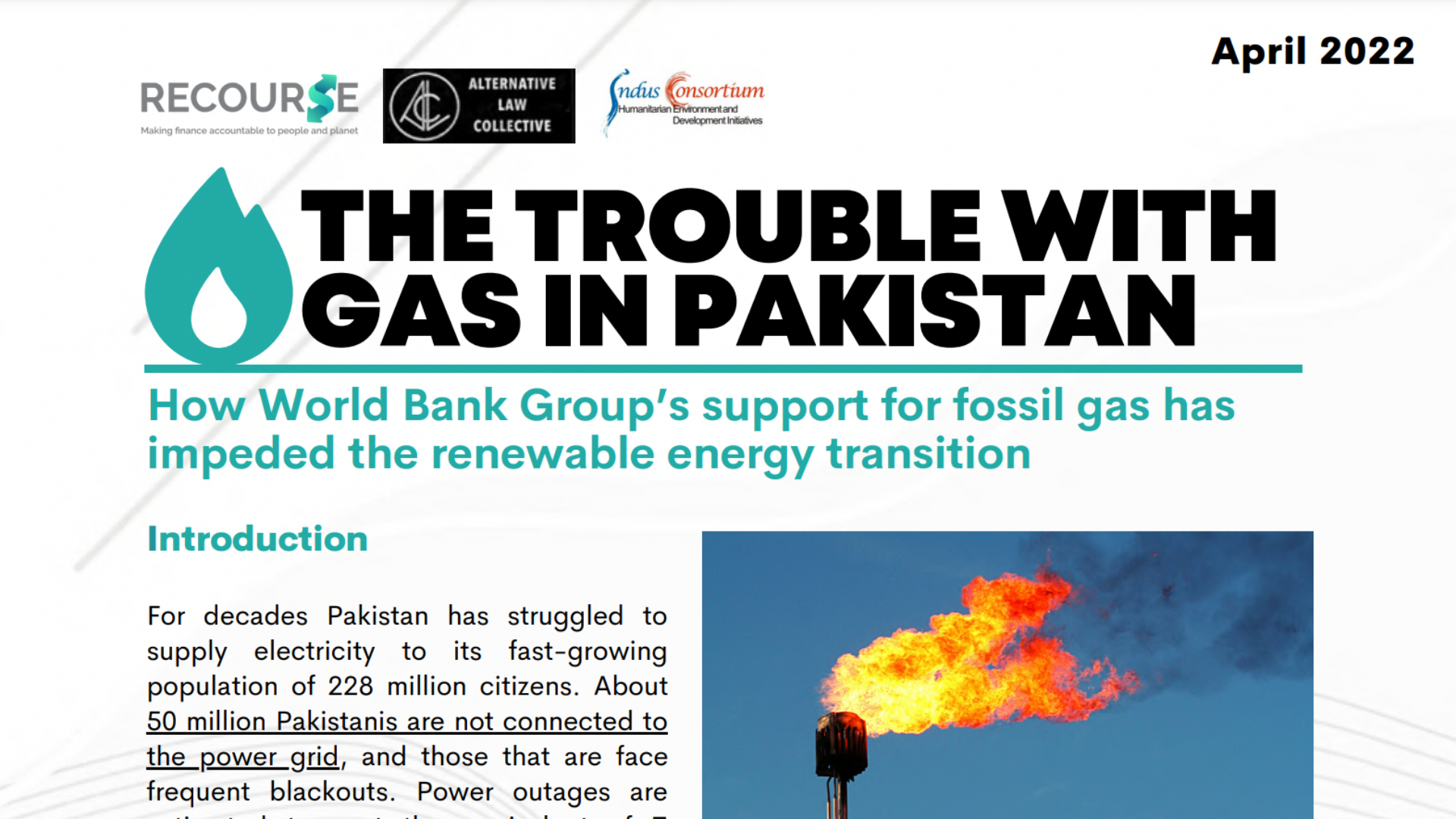- 14.04.2022
- Ecological justice
- Array
The World Bank and IFC have supported gas and LNG energy in Pakistan which has resulted in Pakistan’s dependence on expensive fossil gas in 2022. The World Bank has been central in energy sector planning and development in Pakistan since 1950, and continues to be extremely influential in providing technical assistance and development policy finance that heavily influence its legal, regulatory, and policy frameworks.
With Pakistan’s domestic production of fossil gas in decline, the door is open to a rapid transition to sustainable renewables. Instead demand for fossil gas continues to rise. This demand is artificially inflated due to the heavily subsidised residential and fertiliser sectors. In 2016 Pakistan turned to Liquefied Natural Gas (LNG) to close the supply gap. LNG power plants now constitute 25% of total gas provision.
The World Bank and the IFC must support the Government of Pakistan to look to its own indigenous, sustainable and renewable sources and stop investing in costly imports and fossil fuel infrastructure.
The World Bank Group must:
- Recognise that the previous policy of supporting fossil gas and LNG infrastructure has been a costly mistake that has contributed to Pakistan’s reliance on imported LNG today and the exorbitant spot prices of suppliers.
- Systematically consult with civil society in Pakistan in an open and transparent dialogue on the preparation of new World Bank Development Policy Finance and technical assistance and IFC equity investments and loans for the energy sector.
- Use its resources to support the government of Pakistan to transition rapidly away from fossil gas and imported LNG with an emphasis on ensuring long-term energy security based on sustainable renewables and storage as well as grid flexibility and upgrades.
- Continue to support the transition to sustainable renewables, including solar and wind, and promote Pakistan’s potential to leapfrog “from coal to clean”.

